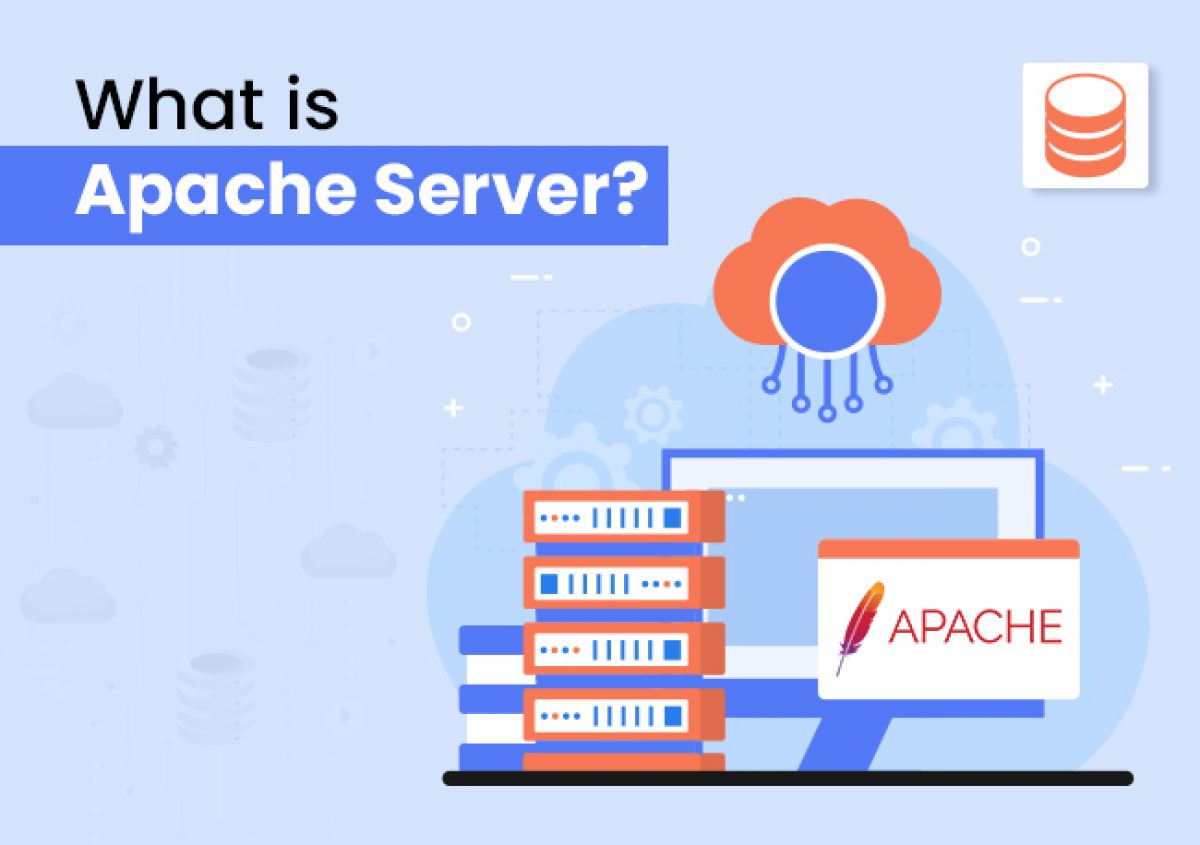Assuming you are a tech nerd, you would surely realize that sites on the web are facilitated through a powerful and solid server to offer an ideal client experience.
While there are various servers to look over, one server that has forever been all the rage and the top pick among site proprietors is Apache.
We are certain that your head is overwhelmed with questions the present moment, similar to what is the Apache server, why website admins are leaned toward it, how it works, what are its upsides and downsides, thus some more.
However, hello, stop in that general area! Peruse this review, and toward its finish, you will have every one of your responses.
What Is Web Server?
Web server alludes to programming responding HTTP demands sent by web clients. The principal motivation behind utilizing a web server is to have sites on the web and display the substance, visuals, and different components of a site or page to the clients.
Other than the above use, web servers are additionally used for putting away data and site components, for example, HTML archives, pictures, CSS and JS documents, and so on.
For the most part, web servers process on committed gadgets or server equipment coordinated with the most recent programming projects like Ngnix, Microsoft IIS, and the one this blog is about — Apache.
What Is An Apache?
As recently referenced, Apache is a web server permitting sites to show content, visual components, and different parts to the client after sending a HTTP demand.
To give you an outline, Apache was first evolved in 1995 as a free and open-source web server by the Apache Programming Establishment.
Other than being a cross-stage server, Apache is a broadly favored programming among site proprietors for its vigor, flexibility, and a set-up of elements, including particular design and broad help.
Why Apache Is A Famous Decision?
-
Open Source Server
One of the principal reasons raising the notoriety of Apache is the availability of the source code. Just making sense of the source code of Apache is free, permitting server clients and engineers to alter and stretch out the abilities as per their requirements.
This isn’t just a practical arrangement yet additionally helps the server clients and engineers to recognize and fix messes with and contribute upgrades.
-
Solid Arrangement
From Slack to LinkedIn and Netflix to Airbnb, nearly everybody utilizes Apache, and the explanation is dependability. Apache has been on the lookout for over twenty years, and all through this period, it has gone through various moves up to improve the client experience.
The enhancements have changed into a stand-out, strong, and solid waiter, versatile to any climate.
-
Local area and Backing
One more advantage of Apache is consistent local area support. The server has a different and dynamic scope of networks containing engineers, specialists in the field, and Apache clients, sharing their thoughts and information for improving the server.
You can get to gatherings, join gatherings, and mail applicable assets to look for their direction and guidance on the subject.
-
Adaptability
One of the astounding advantages of utilizing Apache is that clients and designers can flawlessly alter it as indicated by their prerequisites since it is adaptable and extensible programming.
Its design permits you to effortlessly coordinate extra parts and augmentations, like Programming interface, virtual products, highlights, and so forth, without controlling the core of the server.
-
Unparallel Execution
Apache is known for its capacity to oversee high loads while guaranteeing brilliant execution. Meaning each time there is an approaching solicitation, it will effectively divide the information into accessible assets to figure out some kind of harmony and upgrade the exhibition and in general result.
You might add more machines and hubs when there is a prerequisite to build the capacity limit.
-
Easy Arrangement
The arrangement cycle of Apache is simple, in any event, for non-specialized clients. You should simply download the viable and most recent rendition of the server from the authority site. When you download the server, run the installer or bundle director order to execute the cycle.
That is all there is to it! You are currently good to go.
You can alter the listening port, the archive in the root registry, etc, and begin utilizing Apache.
Like WordPress, this one, as well, has insignificant code use. Moreover, extra highlights, modules, and different upgrades can likewise be carried out to further develop execution and convenience.
How Apache Functions?
As recently examined, the essential capability of Apache is to feature content and different components of a site/website page. While everybody knows all about the superficial, not many know about what goes behind the interaction.
How about we grasp that!
Apache deals with the HTTPS convention, guaranteeing secure and continuous correspondence between the client and server. Evidently, a client has arrived on the landing page of your site. When Apache gets a solicitation from the client side, it slowly and sequentially displays the text, pictures, recordings, etc to the client.
Aside from content and visual conveyance, Apache offers various different highlights, including server control and customization, keeping up with access logs, and more which we will underline in our next area — Elements of Apache.
- Elements of Apache
- Handling of static documents
- Consistent runtime of modules
- Auto-ordering
- .htaccess
- IPv6 similarity
- Upholds HTTP/2
- FTP associations
- Gzip pressure and decompression
- Transmission capacity limit
- Perl, PHP, and Lua scripts
- Logging and following
- URL reworking
- Geolocation
- Intermediary and burden adjusting
- Execution streamlining
Exceptionally configurable and adaptable
Since you are familiar with how does Apache respond and how it functions, How about we leap to posting the upsides and downsides of Apache.
Advantages and disadvantages Of Apache
- Professionals
- Open source and free.
- Extensive variety of modules.
- Virtual and shared facilitating abilities.
- Profoundly configurable and adjustable.
- Quick execution.
- Consistent administration of huge documents.
- Viable with different structures and CMS stages, including PHP, Perl, WordPress, Joomla, and so on.
- Simple to involve in any event, for non-specialized clients.
- Cross-stage similarity.
- Broad people group support.
- Ideal updates.
Cons
Could confront execution issues on weighty sites.
Regular alterations can bring about site weakness.
Putting in new highlights or occasional customization can cause bugs and mistakes.
This was about the upsides and downsides of Apache. We will now exhibit the options in contrast to Apache.
10 Best Options in contrast To Apache
We comprehend that Apache could not exclusively be the selection of clients. People could search for choices with comparative elements offering immaculate execution. That is the reason we have recorded down the 10 most famous options in contrast to Apache.
- Nginx
- Apache Tomcat
- Node.js
- Lighttpd
- Cherokee
- Microsoft IIS
- Appweb
- Hiawatha
- Caddy
LiteSpeed Web Server
Up to this point, we strolled you through the elements and aces and cons of Apache. The following pointer is for designers and clients who need to figure out what web server a site utilizes.



